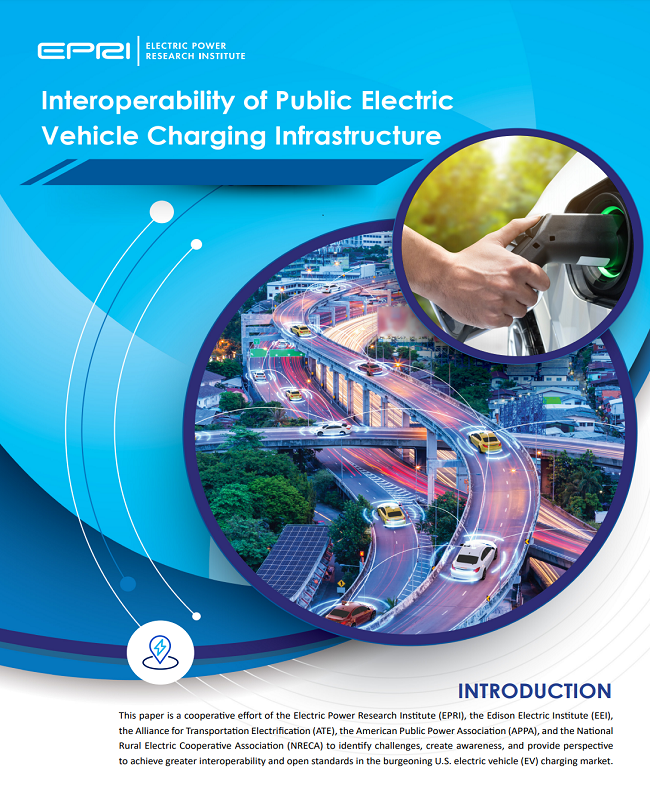In their new white paper, the Electric Power Research Institute (EPRI) covers four core challenges related to public charging infrastructure and how they impact customers, site hosts, and electric companies respectively. The four challenges include charging network-to-charging network interoperability, charging station-to-network interoperability, physical charging interface interoperability, and vehicle-grid interoperability. For the purpose of this paper, interoperability is defined as the process of harmonizing of standards, technology, and practices for EV charging in a way that provides transparency for customers and encourages ease of use. The paper argues that advancing interoperability through open standards and other mechanisms can improve the customer experience and support EV adoption. Produced in partnership with the Edison Electric Institute (EEI), the Alliance for Transportation Electrification (ATE), the American Public Power Association (APPA), and the National Rural Electric Cooperative Association (NRECA), the paper proposes a set of activities that can improve interoperability. These include implementing a standard protocol for business-to-business connectivity that facilitates consumer roaming among charging networks; implementing open, nonproprietary protocols that enable interchangeable services; adopting a single DC charging system to improve charging access and efficiently scale infrastructure; and developing and implementing open standards to manage charging based on grid conditions.
More About this Resource
Publisher: Electric Power Research Institute
Date: August 6, 2019
Type: Research Reports
Countries: United States
States: None
